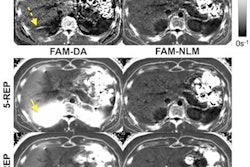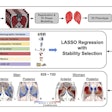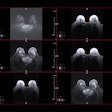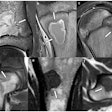Dear MRI Insider,
In suspected cases of nonalcoholic fatty liver disease, what's the best technique for patients who have a problem holding their breath?
A group of leading MRI researchers have addressed this important clinical question in a new study and unveiled their findings in an article posted on 21 March by European Radiology. Also, they've spoken about the work they'll be presenting at the annual congress of the International Society for Magnetic Resonance in Medicine (ISMRM 2022), which takes place in London in early May and will be covered by our editorial team.
A top priority for every MRI practitioner is the need to minimize the number of scan failures. A U.K. team has looked closely at this issue, particularly how scanner design, examination type, and patient age and gender can play a role in failed scans and what can be done to minimize claustrophobia-related issues with patients.
Over the past year or so, MRI has proved to be of great value in assessing the impact of long COVID-19 on the brain. Neuroscientists at the University of Oxford, U.K., have published new research in this area, and their analysis deserves a close look.
Pollution of aquatic environments with gadolinium-based contrast agents appears to be a growing problem. The highly respected Prof. Francesco Sardanelli from Milan spoke about this topic at the recent ECR 2022 Overture meeting in a thought-provoking discussion about the green radiology department.
The role of MRI in screening women who have extremely dense breast tissue continues to prove controversial, but now the European Society of Breast Imaging (EUSOBI) has produced guidelines that seem to mark a shift away from a one-size-fits-all approach to screening in these women.
This letter features only a few of the many reports posted recently in the MRI Community. Please scroll through the full list below, and feel free to contact me if you have ideas for future coverage.




















